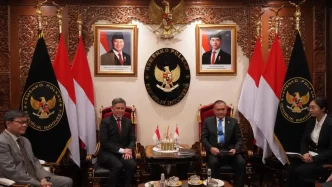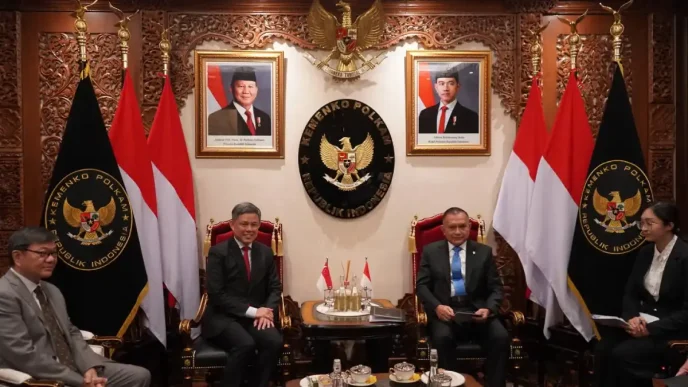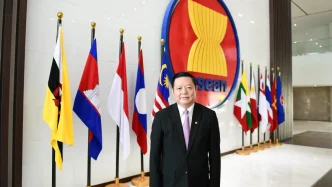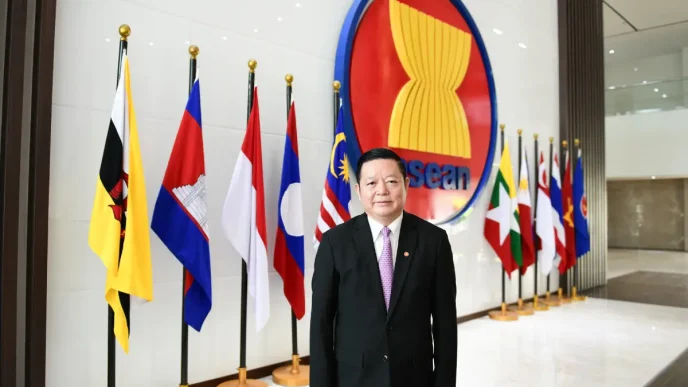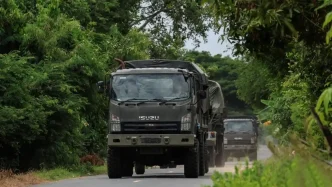Thailand’s political landscape is teetering on the edge of transformation as Prime Minister Paetongtarn Shinawatra faces a pivotal moment in her tenure. Suspended from her duties amid an ongoing Constitutional Court investigation, Paetongtarn, who also serves as the newly-sworn Culture Minister, finds her future—and that of the ruling Pheu Thai Party—under intense scrutiny. With a critical ruling expected by September 2025, the nation watches as allegations tied to a controversial audio recording threaten to reshape the government.
Audio Allegations and Court Deadlines
In early August 2025, the Constitutional Court set a deadline of August 4 for Paetongtarn to submit her defense against claims stemming from a recorded conversation with Cambodian Senate President Hun Sen. This deadline marked the culmination of a second extension granted by the court. According to the established timeline, following her submission, the 36 senators who filed the petition against her have 15 days to present their rebuttal. Paetongtarn retains the right to respond further before the court waits an additional 15 days to deliver its verdict.
The accusations center on whether her dialogue with Hun Sen breached ethical or legal boundaries in her capacity as Prime Minister. While specifics of the audio content remain under wraps in public discourse, the implications are profound. Paetongtarn’s legal team argues that her actions were driven by a commitment to peaceful conflict resolution, emphasizing that she consulted extensively with military officials, relevant agencies, and foreign affairs experts. They maintain that the individual she contacted was not acting as a government representative but as a personal outreach for peace.
Three Scenarios for Thailand’s Future
The uncertainty surrounding the court’s decision has fueled speculation about Thailand’s political trajectory. During an interview on July 9, 2025, at the “55 Years of The Nation – Breaking Thailand’s Deadlock” event, former Prime Minister Thaksin Shinawatra—Paetongtarn’s father—outlined three potential outcomes that could define the nation’s path forward.
In the first scenario, a favorable ruling would allow Paetongtarn to retain her position. With the government holding 260 votes in Parliament, it would continue to navigate a host of domestic and international challenges, particularly economic pressures. However, even a positive outcome does not guarantee stability, as public and political confidence in the administration remains fragile.
The second scenario envisions a negative ruling, compelling Paetongtarn to step down. This would trigger a complex process to select a new Prime Minister, with several prominent figures in contention. Potential candidates include Chaikasem Nitisiri of the Pheu Thai Party, Anutin Charnvirakul of the Bhumjaithai Party, Gen Prayut Chan-o-cha and Pirapan Salirathavibhaga of the United Thai Nation Party, and Jurin Laksanawisit of the Democrat Party. Such a transition could deepen political divisions and test the resilience of coalition dynamics.
The third and most disruptive scenario involves the dissolution of Parliament. Under this outcome, the government would operate in a caretaker capacity for at least 60 days, as mandated by law. This option, previously discussed with relevant agencies, confirms that a caretaker Prime Minister retains the authority to dissolve Parliament, setting the stage for fresh elections. The uncertainty of this path raises questions about governance continuity amid ongoing crises.
Behind-the-Scenes Power Plays
Beyond the courtroom drama, analysts point to influential figures operating in the shadows of Thai politics. References to a Big Boss unwilling to cede control suggest that unseen forces may shape the fallout of the court’s decision. If the ruling goes against Paetongtarn, political observers anticipate the emergence of a strategic hidden card to maintain the status quo or redirect power dynamics.
Within the Pheu Thai Party, key advisors are working to counter speculation and stabilize the narrative. Dr. Prommin Lertsuridej, Secretary-General to the Prime Minister, recently dismissed rumors of Paetongtarn’s preemptive resignation as unfounded. This stance contrasts with past instances, such as the case of former Minister Pichit Chuenban, whose resignation led to the dismissal of a related petition due to his exit from office. However, Paetongtarn’s situation differs, as resignation would not necessarily halt ongoing investigations.
Broader Investigations and Border Tensions
Adding to the complexity, the National Anti-Corruption Commission (NACC) continues to probe the audio recording involving Hun Sen, often referred to in local media as the “Uncle Hun Sen audio” case. Even a preemptive resignation by Paetongtarn would not close this chapter, as the NACC’s investigation operates independently of her political status. This parallel scrutiny underscores the multifaceted challenges facing her administration.
Compounding the government’s woes are unresolved Thai-Cambodian border issues, which have eroded public confidence. With no clear resolution in sight, these tensions exacerbate perceptions of instability. Should Paetongtarn be sidelined, leaving Acting Prime Minister Phumtham Wechayachai to helm the government, a potential power vacuum could further destabilize an already fragile administration.
Thaksin Shinawatra’s Legal Battles
The Shinawatra family’s political saga extends beyond Paetongtarn, with Thaksin Shinawatra facing his own legal challenges. A criminal case under Section 112 of Thailand’s Penal Code, known as the lese-majeste law, stems from an interview he gave to foreign media in South Korea in 2015, allegedly defaming the monarchy. The court is scheduled to issue a ruling on August 22, 2025, a date that could significantly impact the family’s influence.
Additionally, Thaksin is entangled in a legal dispute over a health-related transfer from prison to the Police General Hospital’s 14th floor. The Supreme Court will hold final witness hearings on July 30, 2025, with a verdict anticipated between mid and late August. These overlapping cases intensify the pressure on the Shinawatra dynasty, casting a long shadow over their political legacy.
A Critical Juncture for Thai Politics
August 2025 emerges as a decisive month for Thailand’s government, with internal conflicts and external pressures converging. The Shinawatra father-and-daughter duo stands at the heart of this storm, their fates intertwined with the nation’s political stability. The Constitutional Court’s ruling on Paetongtarn’s case, alongside Thaksin’s legal outcomes, will likely set the tone for governance in the months ahead.
The broader implications of these developments extend to Thailand’s role in Southeast Asia. Persistent instability could hinder economic recovery and diplomatic relations, particularly with neighboring Cambodia. As border disputes linger and domestic challenges mount, the government’s ability to project strength and unity is increasingly tested.
Public sentiment reflects a mix of apprehension and anticipation. For many Thais, the Shinawatra name evokes both admiration for past populist policies and criticism over governance controversies. Paetongtarn’s tenure, though brief thus far, has been marked by efforts to balance her family’s legacy with the demands of a modern, complex political landscape.
Yet, the specter of past upheavals looms large. Thailand’s history of political turbulence—marked by coups, dissolutions, and court interventions—serves as a reminder of the stakes involved. Each of Thaksin’s outlined scenarios carries risks and opportunities, with the potential to either consolidate power or fracture the political order.
As the Constitutional Court prepares its ruling, questions remain about the durability of the current government coalition and the Pheu Thai Party’s strategic adaptability. Dr. Prommin’s rejection of resignation rumors signals a determination to fight on, but the outcome is far from certain. The interplay of legal verdicts, hidden influences, and public perception will shape whether Paetongtarn can weather this storm or if Thailand will embark on yet another chapter of political reinvention.
With September 2025 on the horizon, Thailand stands at a crossroads. The decisions made in the coming weeks will not only determine Paetongtarn Shinawatra’s fate but also chart the course for a nation grappling with its identity and future. As events unfold, the eyes of the region—and the world—remain fixed on Bangkok.





